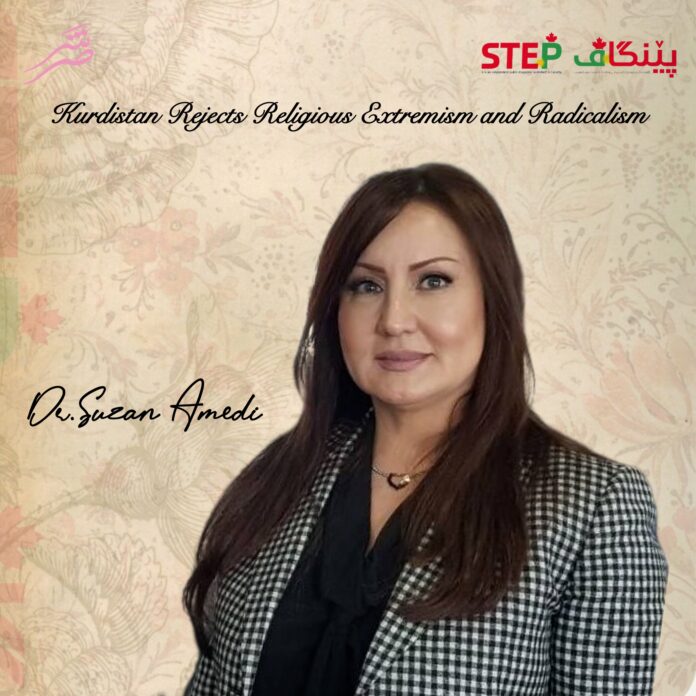Dr. Suzan Amedi
The majority of Kurds are Muslims and believe in saints and religious scholars, yet their adherence to religion is characterized by moderation and a lack of extremism. The Kurdish society is generally conservative and committed to its religious beliefs, but national loyalty takes precedence over religious affiliation in terms of importance.
In the 1990s, certain religious currents emerged that reversed this order, prioritizing religious allegiance over national loyalty. They believed this approach would serve the Kurdish cause. However, this perspective overlooked the fact that the Kurds have been persecuted because of their ethnicity, not their religion. As a result, this shift in priorities does not create a suitable environment for establishing a Kurdish national state. This sentiment is reflected in the widespread belief among Kurds that Salah al-Din al-Ayyubi (Saladin) neglected and marginalized the Kurdish cause, basing his actions on the well-known Hadith: “No Arab is superior to a non-Arab except by piety.” However, history has shown that rulers and sultans did differentiate between ethnic groups, and Kurdish history is a testament to this reality. This has reinforced the need for Kurds to protect and defend their national identity.
The continued presence of religious parties in Kurdistan is largely due to their humanitarian efforts and various social activities within Kurdish society. Nevertheless, the Kurdish people are known for their rational approach when making political choices; if another party were to offer more and better services than these Islamic parties, the Kurdish citizen would not hesitate to shift their support toward the party that better meets their needs.
Attempts by extremist groups like al-Qaeda — through affiliates such as Mullah Krekar’s group — to establish a foothold in Kurdistan have ultimately failed. This is because Kurdish society remains distant from religious extremism, fundamentalism, and fanaticism. This does not mean that Kurds deny their Islamic faith or refrain from defending it, but they recognize that Islamic governments, both historically and today, have failed to support the Kurds during their most difficult times. In fact, Islam has often been used as a tool by these governments to suppress Kurdish nationalism and dissolve their ethnic identity under the broader umbrella of the Islamic community. As a result, Islam has sometimes been perceived as an obstacle to the advancement of the Kurdish cause, transforming the Kurds from a distinct ethnic group into merely a religious sect — a shift that threatens to erase their national rights entirely.
It seems that the Kurds have become increasingly aware of these risks, especially amid the evolving international landscape, in which they have actively engaged and played a significant role. Today, Kurdistan faces one of the fiercest terrorist campaigns in the world.
Therefore, we call on the Kurdistan Regional Government to hold religious figures, groups, and Islamic parties accountable for any extremist or radical rhetoric that promotes division and intolerance, in order to preserve the unity, security, and stability of Kurdish society.





